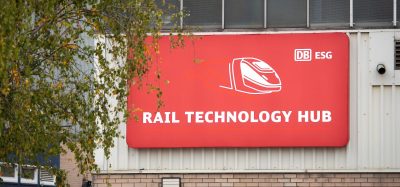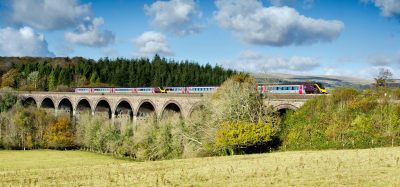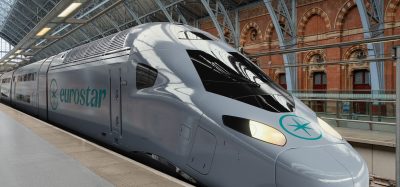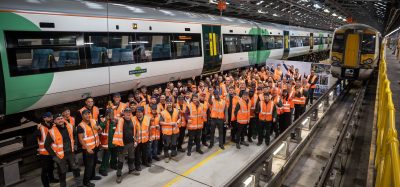How High Speed 2 and Northern Powerhouse Rail will be key to upskilling UK plc
Posted: 28 November 2019 | Tim Danvers | No comments yet
The arrival of High Speed 2 (HS2) and the Northern Powerhouse Railway (NPR) will undoubtedly boost economic growth in the North of England. But these new networks will also provide UK plc with the opportunity to upskill a new generation of rail professionals, writes Tim Danvers, Business Development Director for Rail at SNC-Lavalin’s Atkins business.


Building HS2 and the NPR will need highly skilled engineers to be in the right place at the right time. And both will potentially create thousands of new jobs. But what skills, exactly, will all these new jobs need? Rail is moving into the digital age, so the way we approach future challenges will need to be different. The industry needs to acknowledge that, because the high-speed and NPR programmes are so enormous, and will be so impactful, we need to understand the art of the possible.
Building HS2 and the NPR will need highly skilled engineers to be in the right place at the right time. And both will potentially create thousands of new jobs. But what skills, exactly, will all these new jobs need? Rail is moving into the digital age, so the way we approach future challenges will need to be different. The industry needs to acknowledge that, because the high-speed and NPR programmes are so enormous, and will be so impactful, we need to understand the art of the possible.
The need to be visionary
As well as being new transport systems that will boost economic prosperity in the Midlands and the North by shrinking distances, HS2 and the NPR will create clusters of commercial activity. They will be a catalyst for investment in new, location-based skills. But what kind of skills? We need to be visionary: tomorrow’s requirement is not just for railway engineers, but is just as important for archaeologists, ecologists, and data specialists. Apprenticeships have continued to decline since the eighties and nineties, and businesses have not adequately invested in skills and training for the future. However, demand for new and future skills has not gone away. Having major infrastructure projects like HS2 and the NPR in the pipeline will see exciting new training initiatives get underway to tackle the skills challenge head-on and close the gap in the North and the Midlands.
One important initiative in advancing the skills needed for the railway of the future is the National College for High Speed Rail, recently re-named National College for Advanced Technology and Infrastructure. It opened in 2017, with its main campus located in Birmingham, and a second in Doncaster, as a dedicated college offering further and higher education courses. But the syllabus here is about much more than the traditional ‘nuts and bolts’ of railway engineering. Its recruitment message to students reads: “Our college has been set up to provide training and work experience in all aspects of what makes a modern railway. That’s not just engineering and wearing hard hats anymore, either, we’re talking about creating great passenger experiences, innovation, and design as well…”
As such, the college is fully committed to focusing on the key area of – above all – safety, and making sure everyone is healthy, safe, and supported at all times, alongside inclusion, working in partnerships, innovation, and challenging the norm. As its Chief Executive, Clair Mowbray is committed to creating an environment that attracts opportunities and vibrancy to local employment markets in Doncaster and Birmingham. The college places an important emphasis on exciting and inspiring the next generation, breaking the circle of the traditional jobs market, and making important first steps to improving productivity that will lead to re-balancing the economy across the country.
Creating Midland and Northern centres of excellence
A further initiative, focused on how the industry can bring innovative products to market more quickly, and pioneer technical excellence, is the UK Rail Research and Innovation Network (UKRRIN). Located across four key centres of excellence in the UK, UKRINN’s digital systems centre is at the University of Birmingham, its rolling stock centre is at the University of Huddersfield – with Newcastle and Loughborough Universities also involved – its testing centre is operated by Network Rail in Birmingham, and its infrastructure centre is based at the University of Southampton, with additional involvement from Nottingham, Herriot Watt, and Sheffield Universities. Each centre brings together parties from academia, the rail industry, SMEs, and infrastructure owners.
Such developments are to be warmly welcomed. The founding of the National College for High Speed Rail clearly signalled that the industry recognises the part it must play in developing the skills of tomorrow’s railway professionals beyond the traditional roles of design, building, and maintenance. But these developments are also important from a geographical perspective. While we have talent all over the country, at present we don’t have opportunity all over the country – and the North of England is missing out. There is much current debate on the issue of social mobility – and a strong argument that social mobility, combined with equality of opportunity, can create long-term sustainable growth. If HS2 and the NPR are to be powerful catalysts to economic growth – by boosting prosperity and creating jobs – then they will also empower businesses to improve social mobility.
“While Britain’s immense talent is spread evenly across the country, we cannot say the same about career opportunities. We need to create a more even playing field where everyone – especially the younger generation – can thrive and realise their potential. NPR and HS2 are the catalysts for that change by unlocking growth, attracting inward investment, and creating employment.” Lizi Stewart, Managing Director of UK Transportation, Atkins, DRIVING THE NORTH’S AMBITIONS: Backing Northern Powerhouse Rail report produced in 2019 by Addleshaw Goddard in partnership with the Northern Powerhouse Partnership.
Atkins is playing an important role in mapping out what we think the skills will be to create this future vision of transport in the UK. One area in which we aim to see a step-change is digital design, for example, using building information modelling tools (BIM) that can produce a ‘digital twin’ – a 4D visualisation model of a construction project. Using such tools means less disruption on-site, as railway stations can remain fully operational during work, but also, by digitally phasing and sequencing projects from beginning to end, they can help to de-risk projects and save on cost. They’re also a powerful tool in helping to communicate project details to non-technical stakeholders, by bringing the benefits to life through visualisation. These emerging, visionary technologies will require skills – and it is also up to us in the industry to inspire and include young people in that vision. We need to create excitement around iconic projects, a vision of a future railway that makes schoolchildren want to become involved and understand how they might be able to contribute.
Ambition, commitment, and drive
The National Skills Academy for Rail (NSAR) estimates that approximately 50,000 more people with a breadth of talent and skills are needed to work in rail between now and 2033 in order to deliver our future rail networks. Addressing this issue will require ambition, commitment, and drive from the entire sector. No industry can reach its full potential if it only recruits from a tiny fraction of the talent on offer, so we need to nurture and embrace talent from everywhere. That means highlighting how a diverse workforce is better for people, better for business, and better for the industry as a whole. Research shows that achieving a better gender balance delivers more creative and innovative solutions, faster. It also enables companies to be more customer-focused, as their workforce better reflects their customer base.
Atkins is playing its part; in 2018, we set ourselves a stretching target, aiming for 40 per cent of all new employees being women, and 30 per cent from black and minority ethnic (BAME) backgrounds. We are also proud corporate supporters of Women in Rail, which works to improve the diversity of our sector, and opportunities for women within it. Such initiatives are vital if we are going to attain gender equality, with current figures suggesting that only 12 per cent of the UK’s rail workforce are female, and only eight per cent of those are engineers.
At the 2019 Women in Rail awards, Nusrat Ghani MP laid down a challenge to the industry: “We’ve come a long way. But we should be under no illusion that we have much further to go. I’d ask you all to think [a] bit harder about what more your organisation can do to bridge the gender gap and create a culture of inclusivity so that everyone can shine… We can never stop moving forward on this issue.” It was also encouraging that, in 2018, Network Rail won the Reach Society corporate award for its work to improve career opportunities for young members of the black community, as part of its ongoing drive to be more open and diverse.
Rebalancing our national economy
So, HS2 and the NPR offer the opportunity to use government spending to benefit the parts of the country that need it most. This is about more than delivering a railway network, it’s about rebalancing our national economy and offering exciting new career opportunities to the next generation. Major projects of this kind are social imperatives that have the power to regenerate the skill base of whole regions in the Midlands and the North. And it shouldn’t stop there – we should also be thinking about the other regions and nations that form the UK. How can we serve their future aspirations and needs?
Major projects can help to create professional and technical centres of excellence, without the need for people to relocate to London or work overseas to build up their experience and CV, and help to ensure no one in society gets left behind. We’re starting to produce a new generation of skilled rail professionals, shaping this vision of the future: it signals an exciting future for UK rail.
Tim Danvers leads business development for rail at SNC-Lavalin’s Atkins’ business. A trained engineer, Tim has contributed to major projects including the Channel Tunnel, Class 92, and, more recently, HS2. Tim has built influential relationships with stakeholders across the industry and with clients.
Global Railway Review Autumn/ Winter Issue 2025
Welcome to 2025’s Autumn/ Winter issue of Global Railway Review!
The dynamism of our sector has never been more apparent, driven by technological leaps, evolving societal demands, and an urgent global imperative for sustainable solutions.
>>> Read the issue in full now! <<<







